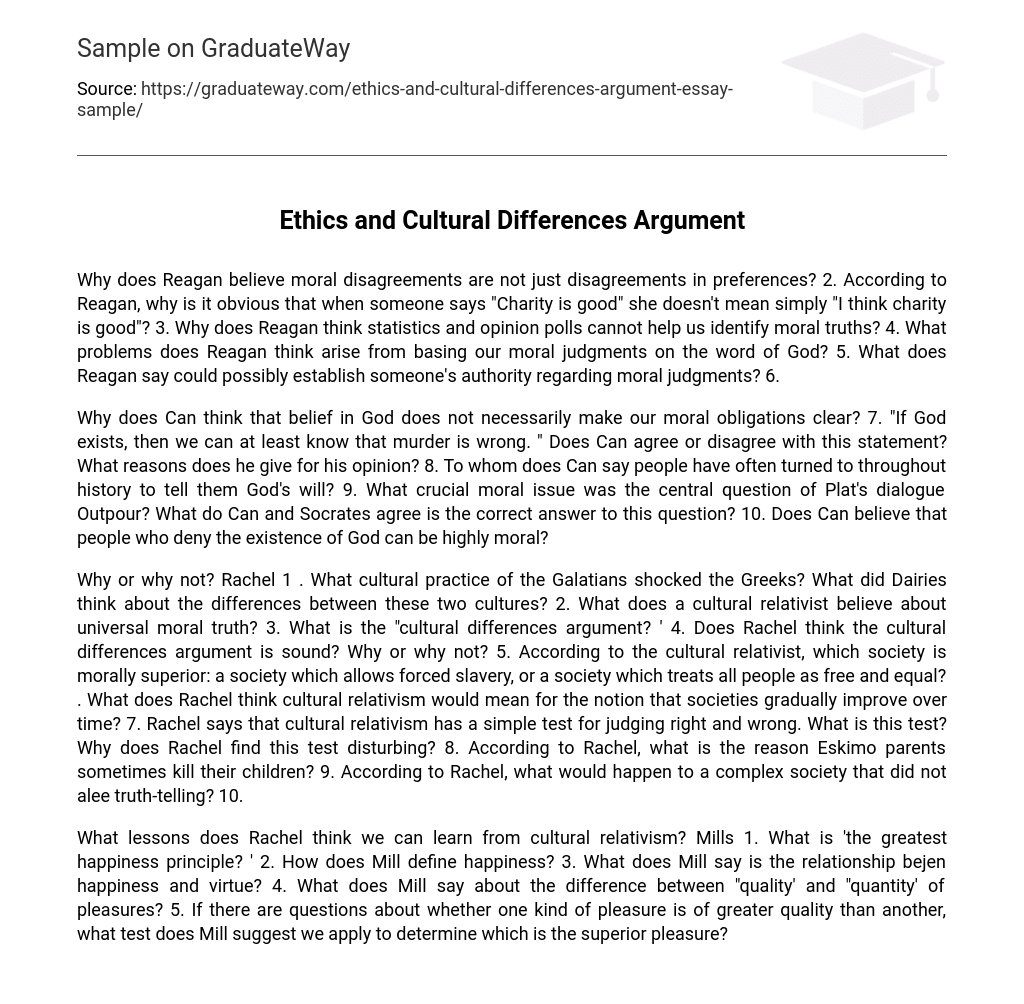Why does Reagan believe moral disagreements are not just disagreements in preferences? 2. According to Reagan, why is it obvious that when someone says “Charity is good” she doesn’t mean simply “I think charity is good”? 3. Why does Reagan think statistics and opinion polls cannot help us identify moral truths? 4. What problems does Reagan think arise from basing our moral judgments on the word of God? 5. What does Reagan say could possibly establish someone’s authority regarding moral judgments? 6.
Why does Can think that belief in God does not necessarily make our moral obligations clear? 7. “If God exists, then we can at least know that murder is wrong. ” Does Can agree or disagree with this statement? What reasons does he give for his opinion? 8. To whom does Can say people have often turned to throughout history to tell them God’s will? 9. What crucial moral issue was the central question of Plat’s dialogue Outpour? What do Can and Socrates agree is the correct answer to this question? 10. Does Can believe that people who deny the existence of God can be highly moral?
Why or why not? Rachel 1 . What cultural practice of the Galatians shocked the Greeks? What did Dairies think about the differences between these two cultures? 2. What does a cultural relativist believe about universal moral truth? 3. What is the “cultural differences argument? ‘ 4. Does Rachel think the cultural differences argument is sound? Why or why not? 5. According to the cultural relativist, which society is morally superior: a society which allows forced slavery, or a society which treats all people as free and equal? . What does Rachel think cultural relativism would mean for the notion that societies gradually improve over time? 7. Rachel says that cultural relativism has a simple test for judging right and wrong. What is this test? Why does Rachel find this test disturbing? 8. According to Rachel, what is the reason Eskimo parents sometimes kill their children? 9. According to Rachel, what would happen to a complex society that did not alee truth-telling? 10.
What lessons does Rachel think we can learn from cultural relativism? Mills 1. What is ‘the greatest happiness principle? ‘ 2. How does Mill define happiness? 3. What does Mill say is the relationship beјen happiness and virtue? 4. What does Mill say about the difference between “quality’ and “quantity’ of pleasures? 5. If there are questions about whether one kind of pleasure is of greater quality than another, what test does Mill suggest we apply to determine which is the superior pleasure?





